Trending
Politics
Read more
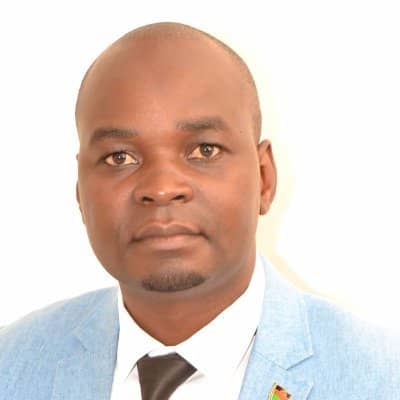
Washington State,
‧
Breaking the Fortress: How Ginford Maulidi Rewrote Chikwawa East’s Political History
Chikwawa East Constituency occupies a distinctive place in Malawi’s political history. Since the advent of multiparty democracy in 1994, the area stood firmly as a United Democratic Front (UDF) stronghold, electing UDF Members of Parliament election after election. For nearly three decades, political change in the constituency appeared inconceivable, with party loyalty deeply entrenched and alternative voices largely dismissed before campaigns even began. That long-standing pattern has now been decisively broken. For the first time since 1994, Chikwawa East has elected a Member of Parliament from the Democratic Progressive Party (DPP). This historic outcome represents not merely a change of party colours, but a profound political shift in a constituency once regarded as impenetrable territory for the opposition. At the centre of this transformation stands Hon. Ginford Maulidi. Maulidi’s victory is no accident of circumstance, nor the product of fleeting political winds. Widely known as calm, humble, and soft-spoken, he embodies the truth of the Chichewa saying: “ndi wodekha koma m’mtima muli kanthu”—gentle in manner, yet strong in purpose. Beneath his quiet disposition lies resilience, courage, and an unshakable sense of conviction. His journey to Parliament was marked by repeated setbacks. He contested the same seat several times and lost. Each defeat tested his endurance and commitment. Where many would have withdrawn, defected, or sought political refuge elsewhere, Maulidi chose perseverance. During periods of intense political turbulence in the Lower Shire, when allegiance became fluid and expediency tempted many, Maulidi stood firm. As some who identified with the DPP defected to support Kondwani Nankhumwa, and later enabled the Malawi Congress Party’s inroads into the East Bank, Maulidi remained resolute. At considerable personal and political cost, he held onto the DPP flag almost single-handedly. Ridiculed, doubted, and politically isolated, he refused to abandon either his party or the constituency he believed in. While others shifted with the prevailing winds, Maulidi remained constant. Mkuyu uyu mondizana ndi chipani, sadatope—this fig tree stayed rooted in the party and did not grow weary. His eventual triumph is therefore earned, not gifted. It is the culmination of patience, discipline, loyalty, and faith—both in party principles and in the electorate. For the people of Chikwawa East, voting for Maulidi signifies more than a partisan realignment; it reflects political maturity, renewed hope, and a willingness to reward consistency and character over historical habit. The electorate has demonstrated that loyalty is not blind, and that long-held political traditions can be reconsidered when leadership, humility, and persistence are proven over time. Maulidi’s story offers a compelling lesson for Malawian politics. It underscores the enduring value of perseverance, affirms that loyalty still matters, and reminds us that political dominance is never permanent. Constituencies evolve, and voters ultimately honour those who remain committed even when the odds are stacked against them. For the DPP, this victory is historic. For Chikwawa East, it is transformative. And for Hon. Ginford Maulidi, it is living proof that steadfastness, humility, and resilience can indeed rewrite history. Phungu wa DPP woyamba ku Chikwawa East, pomwe mbuyo monse kumakhala wa UDF basi since 1994—a moment worthy of record, reflection, and learning.
Read more
Lilongwe, Malawi
‧
President Mutharika Reshuffles Cabinet, Abolishes Minister of State Position
President Professor Arthur Peter Mutharika has announced a major cabinet reshuffle, abolishing the position of Minister of State in a move aimed at streamlining government operations and reducing public expenditure amid ongoing economic challenges. The changes, which take immediate effect, were announced in a press statement issued by Chief Secretary to the Government, Dr. Justin Adack K. Saidi, and are made under powers granted to the President by Section 92 (1) of the Constitution of the Republic of Malawi. The Minister of State portfolio had been part of the administration formed following the September 2025 general elections, in which President Mutharika secured a landslide victory. Its removal is being widely interpreted as a response to public calls for fiscal discipline and lean government. The reshuffle retains several key ministerial portfolios while introducing a number of deputy minister appointments, a move government sources say is intended to enhance coordination, decentralize decision-making, and improve service delivery in priority sectors. Under the new arrangement, President Mutharika remains President and Commander-in-Chief of the Malawi Defence Force and Malawi Police Service, supported by First Vice President Dr. Jane Ansah, SC, JA (Rtd), and Second Vice President Enoch Kamzingeni Chihana. The economic cluster continues to be led by Minister of Finance, Economic Planning and Decentralization, Joseph Mwanamvekha, MP, alongside portfolios overseeing agriculture, trade, energy, and labour—sectors viewed as central to economic recovery. Among notable appointments: George T. Chaponda, MP retains Foreign Affairs and International Cooperation Roza Fachi Mbilizi, MP heads Agriculture, Irrigation and Water Development George Patridge takes charge of Industrialisation, Business, Trade and Tourism Alfred Gangata, MP has been appointed Minister of Natural Resources Jean Mathanga, MP oversees Energy and Mining The reshuffle also introduces several deputy ministers in ministries including Agriculture, Health, Education, Natural Resources, Gender, and Industrialization, signaling increased operational support in service-heavy departments. Political analysts describe the reshuffle as a strategic recalibration barely three months into President Mutharika’s new term, aimed at injecting momentum into governance and aligning cabinet performance with campaign promises. “The appointment of deputy ministers suggests a deliberate effort to strengthen implementation capacity, especially in agriculture, health, and education—areas critical to economic stability and social resilience,” said one governance analyst. The abolition of the Minister of State position has drawn particular attention, with commentators viewing it as a symbolic and practical cost-saving measure, reinforcing the administration’s commitment to fiscal prudence. According to the Chief Secretary’s statement, all appointments and structural changes take effect immediately, as the administration moves to consolidate its policy agenda amid economic recovery efforts and climate-related pressures.
Read more
Phalombe Malawi
‧
APM Reviving Economy
Democratic Progressive Party (DPP) Vice President for the Southern Region, Honourable Joseph Mathyola Mwanamvekha, has told residents of Phalombe North that the country’s economy is on a recovery path under the leadership of President Arthur Peter Mutharika. Speaking during a political rally held at Namileme Primary School Ground, Mwanamvekha said the current administration has stabilised the economy following what he described as mismanagement during the previous Malawi Congress Party (MCP) government led by President Lazarus Chakwera between 2020 and 2025. He pointed to improved availability of essential commodities as evidence of economic recovery, noting that maize prices have reportedly dropped from around K110,000 to K50,000 per 50kg bag. Mwanamvekha also highlighted improved fuel supply across the country. “Fuel is now readily available. There are no longer queues at our filling stations,” he said. Member of Parliament for Phalombe North, Honourable Feston Chauma, thanked constituents for their continued support and expressed appreciation to Mwanamvekha for pledging to facilitate the rehabilitation of the Chiteketsa road, which has long been in a poor state. The rally attracted several senior DPP officials, including Regional Governor for the South, Honourable Charles Mchacha, and DPP Director of Youth for the Southern Region, Honourable Bizzier Kalulu. The meeting formed part of the DPP’s outreach programme aimed at updating citizens on government initiatives while also gathering feedback from the grassroots. Mwanamvekha urged residents of Phalombe North to maintain their support for President Mutharika’s development agenda, which he said is focused on economic stability and growth.
Read more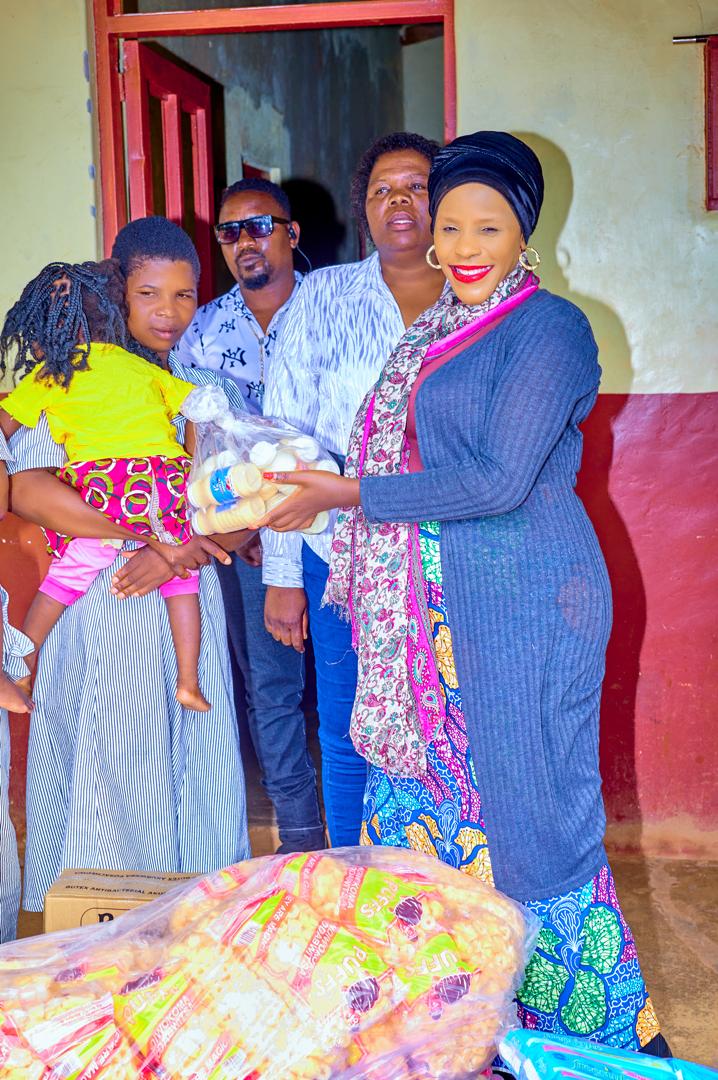
Thyolo Prison,
‧
DPP Southern Region Women’s Director Donates to Female Inmates at Thyolo Prison
The Democratic Progressive Party (DPP) Director of Women for the Southern Region, Honourable Maria Mainja, on Tuesday visited female inmates at Thyolo Prison, where she donated assorted items and hosted a luncheon as part of end-of-year goodwill activities. The visit, held on December 30, was aimed at bidding farewell to 2025 and welcoming the new year. It coincided with similar outreach activities by other DPP officials, including the party’s Director of Youth, who visited inmates at Maula Prison during the festive season. Speaking to the inmates, Mainja encouraged them to remain hopeful and committed to personal reform. She emphasized the importance of rehabilitation, urging the women to use their time in custody for reflection and positive change, which she said could improve their chances of reintegration into society and consideration for future pardons. “As women, we must encourage one another to choose lawful paths in life,” Mainja said, adding that crime often exposes families—especially children—to hardship and suffering. Mainja also addressed concerns raised by the inmates regarding water shortages, electricity challenges, and inadequate shelter at the facility. She assured them that she would relay the issues to relevant authorities for possible intervention. The DPP official further stated that inmates remain part of Malawian society and deserve dignity and protection of their fundamental rights, regardless of their circumstances. Mainja has been an active political figure in the Southern Region, where she played a visible role in mobilization efforts during the September 16 general elections. Her visit to Thyolo Prison, she said, reflects her commitment to community engagement and social responsibility beyond partisan politics. The visit was welcomed by prison officials and inmates, who expressed appreciation for the support and the attention given to their welfare concerns.
Read moreSports
Read more
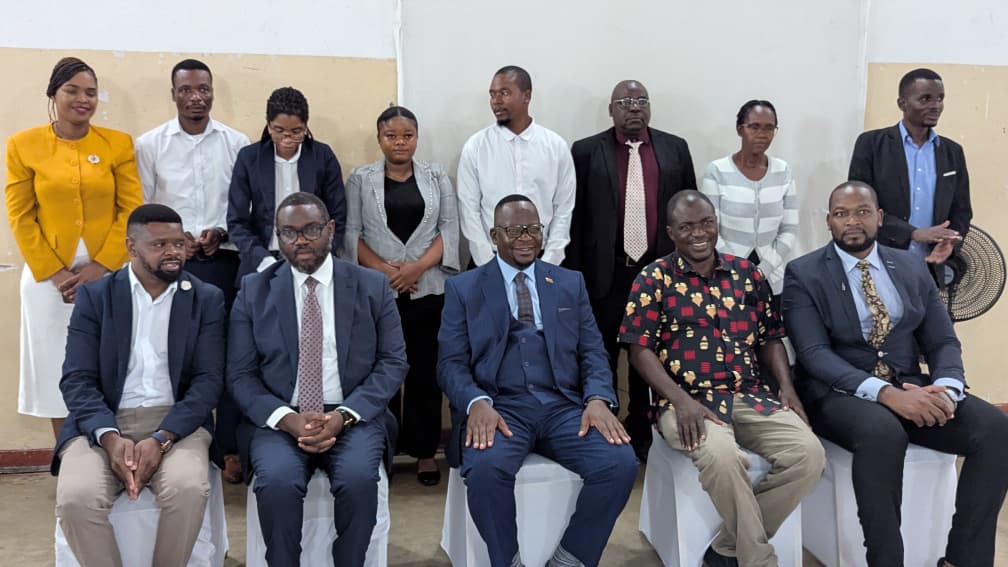
Minister Urges Journalists to Uphold Professionalism and Impartiality
Minister of Information and Communication Technology, Hon. Dr. Shadreck Namalomba, MP, has emphasized the importance of a free, responsible, and vibrant media, saying it plays a critical role in informing the public, fostering national unity, and promoting Malawi to attract investors and tourists. The Minister made the remarks on Friday, December 19, during the Annual General Meeting (AGM) of the Blantyre Press Club held at the Grace Bandawe Conference Centre in Blantyre. He challenged journalists to consistently uphold professional standards and ethical conduct in their work. Dr. Namalomba commended journalists for their objectivity and courage in reporting, describing them as “frontline defenders of justice who hold those in power to account, expose wrongdoing, and give a voice to the voiceless.” He further assured the media fraternity of government’s commitment to creating an enabling environment that allows journalists to effectively carry out their duties and fulfill their immense responsibility to society. The Minister was accompanied by Malawi Communications Regulatory Authority (MACRA) Director General, Mayamiko Nkoloma. During the event, Dr. Namalomba donated K2 million to the Blantyre Press Club in support of its activities. This year’s AGM was held under the theme “Promoting Justice, Peace, and Unity in the Digital Era.
Thyolo Prison, Thyolo
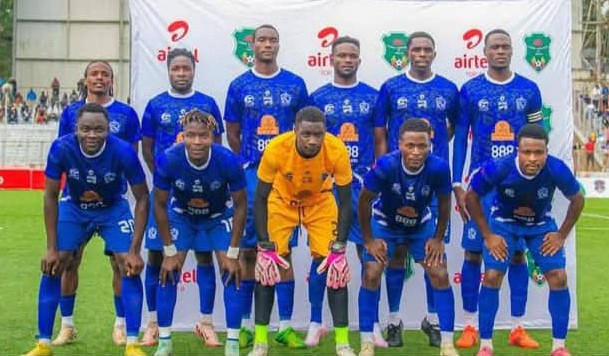
Wanderers Crowned 2025 TNM Super League Champions After 6–0 Rout of Moyale Barracks
Mighty Wanderers FC have been crowned champions of the 2025 TNM Super League after a commanding 6–0 victory over Moyale Barracks, sealing the title with a game to spare. The emphatic win confirmed Wanderers as the new kings of Malawian football, capping a dominant and consistent campaign that has seen them outclass most of their rivals. With the victory, Wanderers have moved to 68 points at the top of the league table, an unassailable lead that officially hands them the championship before the final round of fixtures. The Nomads were ruthless against Moyale Barracks, displaying attacking flair, tactical discipline, and defensive solidity that have defined their title-winning season. The six-goal thriller not only delighted their supporters but also underlined their status as the most formidable side in the league this season. Despite having already secured the title, Wanderers still have one fixture remaining. They will face another military outfit, Kamuzu Barracks, next week at Balaka Stadium in what will be the final match of their league campaign. A victory in that encounter would see the champions finish the season on an impressive 71 points. As celebrations begin among the Wanderers faithful, the club can now turn its attention to finishing the season on a high note and preparing for continental engagements, where they will represent Malawi following their TNM Super League triumph. The 2025 season will be remembered as one of authority and excellence for Mighty Wanderers FC—a campaign that firmly restored them to the summit of Malawian football.
Thyolo Prison, Thyolo

Wanderers Go Top After Silencing Karonga United at Kamuzu Stadium
Mighty Mukuru Wanderers have dislodged FCB Nyasa Big Bullets from the summit of the 2025/26 TNM Super League after easing past a stubborn Karonga United 2-0 in a rain-soaked mid-week fixture at Kamuzu Stadium in Blantyre. The victory was a sweet revenge for the Nomads, who a few months ago suffered a 2-0 defeat to the same side at Karonga Stadium in the Airtel Top 8. Coming from a wave of criticism following their shock first loss of the season to relegation-threatened Mzuzu City Hammers, Wanderers approached Wednesday’s match with renewed urgency, discipline, and tactical sharpness. Their intent paid off early. It took only eight minutes for in-form striker Promise Kamwendo to break the deadlock, calmly slotting home after connecting with a brilliant Isaac Kaliyati delivery. Wanderers, deployed in a fluid 3-5-2 formation, continued to dominate possession and stretch the visitors, whose rigid 4-4-2 setup struggled to cope with the Nomads’ width and high pressing. The pressure eventually cracked Karonga United’s resistance as Garddie Chirwa doubled the lead in the 29th minute with a thunderous strike that left the goalkeeper rooted. The Nomads went into the break 2-0 up, and although the second half was heavily affected by a strong downpour, the hosts managed the game well and kept Karonga United at bay. After 90 minutes, the scoreline remained unchanged, sealing a crucial win that pushes Wanderers to 62 points—three clear of their rivals FCB Nyasa Big Bullets. With momentum now on their side, Wanderers will play their remaining three fixtures at home. They host Civo Service United on Sunday before taking on Moyale Barracks and Kamuzu Barracks in their final matches of the campaign.
Thyolo Prison, Thyolo

FCB Nyasa Big Bullets Part Ways with Head Coach, Peter Mponda
FCB Nyasa Big Bullets have announced that they have parted ways with head coach Peter Mponda, bringing an end to his tenure at the People’s Team. The decision comes barely hours after Bullets’ hopes of winning the 2025 TNM Super League title were mathematically extinguished following a goalless draw against Mighty Tigers on Saturday. The result confirmed that the club has failed to clinch the league title for a second consecutive season. In a statement published on the club’s official website, Bullets confirmed the departure but did not immediately disclose details regarding the terms of separation or plans for a replacement. Mponda’s exit has sparked mixed reactions among Bullets supporters, with some fans expressing disappointment over the team’s inability to reclaim domestic dominance, while others have questioned the timing of the decision given that the season is yet to conclude. FCB Nyasa Big Bullets still have one fixture remaining in the 2024/25 TNM Super League season, a match against Mzuzu City Hammers, which will now be played amid uncertainty over the team’s technical leadership. The club is yet to announce who will take charge of the final game of the season or outline its technical direction ahead of the next campaign.
Thyolo Prison, Thyolo
Education
Read more

Chonde-Mulanje, Malawi
‧
APM Declares No Secondary School Fees from January 2026
His Excellency President Peter Mutharika has declared that from January 2026, secondary school education will be free in all public secondary schools in Malawi. The Malawi leader said this on Sunday, 19 October 2025 at Mulhako Wa Alhomwe headquarters at Chonde in Mulanje during this year’s cultural festival where he was the guest of honour. The president is also the patron of this cultural grouping whose aim is to preserve and promote Lhomwe culture. The news was greeted with great excitement as school fees has been a barrier to some students with a dream to pursue secondary education especially those from ultra poor families. On hunger situation, the president assured Malawians that government has bought over 200,000 metric tones of maize from neighboring Zambia and that it will start arriving soon. Mutharika expressed surprise by the reaction of some farmers and traders who wanted the government to buy maize locally. He said he is perturbed by such accusations because the situation became dire when maize scarcity was reported in many parts of the country not knowing that some farmers and traders are hoarding maize. Nearly half the population of the country is facing hunger and experts fault the previous regime for failure to purchase maize in time.
Read more
Nguludi, Chiradzulu
‧
Catholic University Strive to Offer Tailor – Made Programmes Designed to Meet Employers’ Needs
The Catholic University of Malawi on Friday September 26, 2025 saw the remarkable and record passing out of over 1,500 graduands who have successfully completed their programmes in various fields of studies at the institution. Speaking at the graduation ceremony, Chancellor of the Catholic University of Malawi Bishop Martin Mtumbuka said the university takes pride in offering skills to students so as to make them employable and also to help them look after themselves through entrepreneurship should they become unsuccessful on the job market due to limited opportunities. Bishop Mtumbuka encouraged universities in the country to occasionally, conduct research which is crucial in determining the kind of skills required by prospective employers. The Chancellor warned both the staff and students that the institution’s policy remains unchanged on individuals who lack discipline, saying they will be fired or weeded out. On his part, Old Mutual Malawi Group Chief Executive Officer Taxona Biza who was the guest of honour, said the world keeps evolving therefore, this calls for a reason not to keep doing things as usual. He advised the graduands not to wait to be employed but to start something so that in future, they employ others. The Catholic University of Malawi was established in 2004 but opened its doors in 2006 and its first congregation was in 2010 with less than 100 students.
Read more
Mulanje, Malawi
‧
Mulanje Police Arrests 8 Form 4 Students For Bullying Form 1 Students and Vandalizing Property
Police in Mulanje have arrested 8 male students of Mulanje Secondary school who are seating for this year’s Malawi School Certificate of Education examinations for bullying form one students and Vandalising school property It was all started on Sunday 13 July, 2025 when form one students reported their ill treatment to the head teacher. According to one victim who opted for anonymity, some form 4 students on Sunday entered form one students’ hostels and took some of them into the nearby bush and started beating them and demanding cash. One traumatized victim who spoke to Khulubvi Post narrated harrowing experiences he suffered as he was carrying his bags on his head heading home The situation went out of control some form 4 students started vandalising property, stealing mattresses and blankets, physically assaulting the form ones in solidarity with their colleagues who were identified as ring leaders and were taken by police for questioning Violence continued to Monday afternoon when police fired teargas leading to form one students leaving school campus looking for safety The suspects will potentially face theft and vandalism charges after exams, according to Mulanje police station Public Relations Officer sergeant Innocent Moses
Read more
Lilongwe, Malawi
‧
Japanese Ambassador on Addressing Socio-Economic Issues for Malawi
Japanese Ambassador to Malawi, Yoichi Oya, underscored the vital role of higher education in addressing Malawi’s pressing socio-economic issues during his visit to Kamuzu University of Health Sciences (KUHeS) on Wednesday. The visit formed part of the Ambassador’s wider tour of Malawian universities aimed at gaining insight into their operations and exploring potential partnerships with Japanese institutions. “Since I was posted in this country, I have been visiting some leading universities to find out some spaces of engagement with the Japanese universities. I will take all the information back to my office to see how we can continue working together,” Oya stated. Dr. John Phuka, KUHeS Executive Dean, School of Global and Public Health, said KUHeS through his school can leverage Japanese knowledge and experience in managing the impacts of natural disasters and public health emergencies. “As you are aware that the country is facing significant challenges in terms of cyclones and other public health emergencies of different kinds including epidemics,” he said. Dr. Phuka also appealed to the Ambassador for resource support to address the increasing demand for healthcare human resources in Malawi. Prior to the discussions, Ambassador Oya was given a tour of the KUHeS campus, where he observed the infrastructure development and gained insight into the university’s service provision.
Read moreEntertainment
Read more
Business
Read more

Lilongwe, Malawi
‧
Henry Mathanga’s Return to RBM: Restoring Experience and Stability at a Critical Moment
Henry Mathanga’s professional journey at the Reserve Bank of Malawi (RBM) began in 1984. Through decades of diligence, competence, and unwavering commitment, he steadily rose through the ranks to become Deputy Governor. During his tenure, Mathanga played a pivotal role in driving key institutional reforms that strengthened RBM’s operations and contributed to a period of strong financial performance and profitability for the Bank. His return to the Reserve Bank should not be misconstrued as political appeasement, as some critics have suggested. Rather, it represents a deliberate correction of a misstep rooted in political interference. Following the Malawi Congress Party’s (MCP) rise to power in July 2020, RBM became one of the first institutions to face direct political pressure. An investigation—widely viewed as questionable in both motive and process—was swiftly initiated, leading to Mathanga’s suspension. This was later compounded by what many perceived as contrived legal cases involving him and former Governor Dalitso Kabambe. By 2021, the pressure intensified. Mathanga became the target of sustained public attacks, amplified through sections of the media and widely believed to be politically sponsored. He was repeatedly summoned to court over cases that ultimately failed to stand the test of credibility. A seasoned technocrat who had devoted the greater part of his life to public service was subjected to public humiliation and character assassination. With the Democratic Progressive Party (DPP) now back in leadership, attention has shifted to repairing institutional damage and addressing pressing economic challenges—chief among them, the foreign exchange crisis. Former President Professor Arthur Peter Mutharika is widely regarded as a leader who understands the importance of experience and technical competence in economic management. His decision to place trust in Mathanga once again reflects confidence in proven expertise rather than political convenience. Malawi’s need for foreign exchange is urgent and undeniable. As the country seeks solutions “as soon as yesterday,” the return of a seasoned and knowledgeable professional like Henry Mathanga to the Reserve Bank offers renewed hope that stability, credibility, and effective policy direction can be restored at this critical institution.
Read more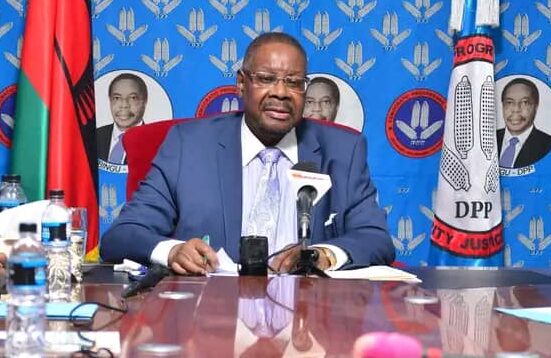
Phalombe, Malawi
‧
APM Revamping Economy
Democratic Progressive Party (DPP) Vice President for the Southern Region, Honourable Joseph Mathyola Mwanamvekha, has told residents of Phalombe North that Malawi’s economy is showing signs of recovery under the leadership of President Professor Arthur Peter Mutharika, following what he described as years of mismanagement under the previous Malawi Congress Party (MCP) administration led by President Lazarus Chakwera (2020–2025). Mwanamvekha made the remarks on Sunday while addressing a political rally held at Namileme Primary School Ground, where he pointed to stabilizing prices of basic commodities and improved fuel availability as indicators of economic recovery. He cited the reduction in maize prices, which he said had fallen from about K110,000 to K50,000 per bag, and noted that fuel was now readily available across the country. “There are no longer fuel queues at our filling stations,” Mwanamvekha told the crowd, drawing applause from supporters. Member of Parliament for Phalombe North, Honourable Feston Chauma, thanked constituents for their continued support and expressed appreciation to Mwanamvekha for committing to the rehabilitation of the Chiteketsa dust road, which he described as impassable and a major challenge to local transport and trade. Chauma said the proposed road works would significantly improve access to markets and public services for communities in the area. The rally attracted several senior DPP officials, including DPP Southern Region Governor Hon Charles Mchacha and DPP Director of Youth for the South, Hon Bizzier Kalulu, underscoring the party’s renewed grassroots mobilization efforts in the region. According to party officials, the rally formed part of the DPP’s broader outreach program aimed at updating citizens on government progress while also listening to community concerns. Mwanamvekha urged residents of Phalombe North to remain united and continue supporting President Mutharika’s development agenda, which he said prioritizes economic stability, infrastructure development, and improved livelihoods. The DPP has recently intensified similar engagements across the Southern Region as it seeks to consolidate political support and communicate its policy direction to the public.
Read more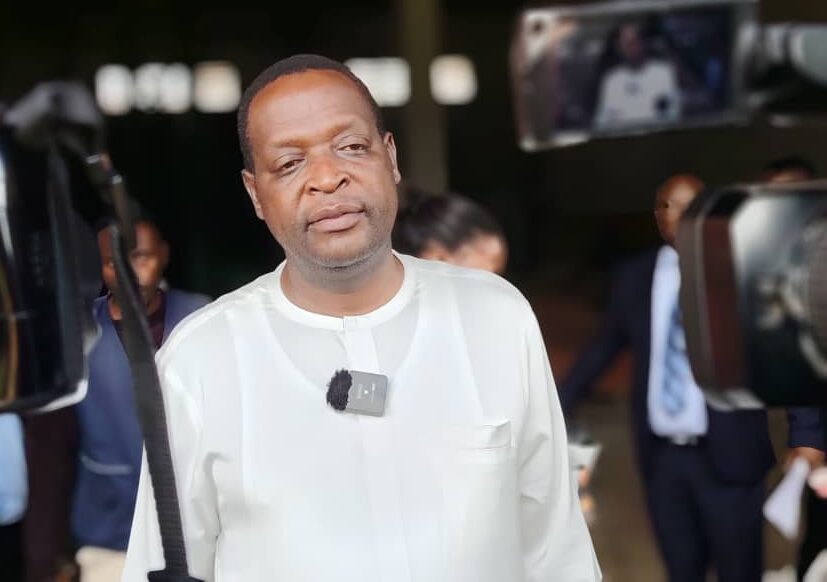
Chigumula, Malawi
‧
Mulli Praises Mutharika
Chairperson of Mulli Brothers Limited (MBL) Holdings, Mulli, has publicly endorsed the administration of President Professor Arthur Peter Mutharika, crediting the government with creating a stable and business-friendly economic environment capable of stimulating growth and employment. Mulli made the remarks during a thanksgiving prayer service held at the company’s headquarters in Chigumula, Blantyre, where he emphasized the importance of collaboration between the private sector and government in efforts to stabilize and grow the national economy. According to the business leader, a sound macroeconomic environment would allow major companies such as MBL Holdings to expand operations and create more employment opportunities for Malawians. “When the economy is stable, businesses can grow. That growth translates directly into more jobs for Malawians across all our companies,” Mulli said. Mulli’s endorsement reflects growing confidence among sections of the private sector in the government’s economic policies, particularly those aimed at improving the investment climate, maintaining market stability, and supporting local industries. Analysts note that private-sector participation is key to economic recovery, especially in job creation and industrial growth. MBL Holdings operates across multiple sectors, and its expansion has the potential to contribute significantly to employment and economic activity, particularly in urban and peri-urban areas. Mulli reaffirmed his commitment to working closely with government authorities to support economic stabilization efforts, stressing that sustainable growth requires cooperation between policymakers and business leaders. The thanksgiving service also took on a national tone, with Reverend Boniface Tamani offering prayers and well wishes for President Mutharika as he embarks on his second term in office. Speakers highlighted the need for wisdom and unity in steering the country’s economic direction. The event drew several prominent figures, including Bishop Brighton Malasa, Dr. Ken Lipenga, a former Cabinet minister, Rev. Missie Spiki, Vice Synod Moderator, Rev. Jimmy Banda, Deputy General Secretary, Rev. Billy Gama, MBL Holdings’ Chaplain, as well as employees of MBL Holdings. Observers say endorsements from leading business figures signal optimism about Malawi’s economic trajectory, with expectations that policy consistency, private investment, and job creation will play a central role in strengthening the economy in the coming years.
Read more
Washington State,
‧
Ria Money Transfer: A Global Leader in Remittance Services
Ria Money Transfer, a subsidiary of Euronet Worldwide, Inc., has grown into one of the world’s leading financial services companies specializing in electronic funds transfer and remittances. Founded in 1987, Ria has built a strong global footprint, serving millions of customers across continents. Headquartered in Buena Park, California, United States, Ria operates under Euronet’s Money Transfer Segment, led by Juan Bianchi, Chief Executive Officer. The company employs more than 4,000 people worldwide and reported revenues of $1.18 billion with an operating income of $59.7 million in 2020. Ria Money Transfer is recognized as one of the “big four” global remittance companies, operating through a vast network of agents and company-owned stores across North America, South America, Europe, Asia-Pacific, Africa, and online platforms. As of 2020, Ria’s services were available at more than 470,000 locations in 159 countries, as well as through its mobile app and website, riamoneytransfer.com. Over the years, Ria has risen to become the second-largest money transfer service in the world, driven by strategic partnerships, acquisitions, and technological innovation. In 2006, Ria was acquired by Euronet Worldwide, Inc., joining its money transfer segment alongside foreign exchange brand XE. The acquisition marked a major milestone in Ria’s international expansion. Ria began collaborating with post offices in 2010, and in 2014, partnered with Postbank of Kenya, enabling customers to send and receive money through all 99 Postbank branches or directly into bank accounts. This move significantly improved financial access for customers in East Africa. That same year, Ria launched Walmart-2-Walmart Powered by Ria in the United States, a domestic money transfer service available at more than 4,600 Walmart stores. The partnership was later expanded to Latin America in 2016, including a collaboration with Walmart Chile, offering remittance services through selected Líder supermarkets. In 2019, Ria and Walmart partnered with PayPal’s Xoom to introduce domestic money transfer services, enabling Xoom to expand into 60 countries through the agreement. Ria continued to strengthen its global presence with the acquisition of Malaysia-based IME in 2015. The company has also expanded aggressively in Latin America, supported by a joint venture between Euronet Worldwide and Spain’s Prosegur Cash. In Africa, Ria has gained regulatory recognition and partnerships. In March 2021, the Central Bank of Nigeria listed Ria as an approved international money transfer operator for diaspora remittances. First Bank of Nigeria also collaborates with Ria to facilitate inbound remittance flows. Ria has invested heavily in digital platforms to meet the growing demand for fast and convenient money transfers. The Ria Money Transfer App, available on Android and iOS, allows users in the United States, Canada, and most European countries to send money through Ria’s global network. The app has surpassed one million downloads. The company also supports mobile money services, particularly in Sub-Saharan Africa, where mobile wallets play a critical role in financial inclusion. Through a partnership with Qmoney in The Gambia, Ria customers can send funds directly to mobile wallets, reducing costs and increasing accessibility. During the COVID-19 pandemic, global institutions including the World Bank highlighted the importance of remittances as a vital lifeline for vulnerable populations. Ria played a significant role in maintaining cross-border money flows during this period, reinforcing its importance in the global financial ecosystem. Today, Ria Money Transfer remains a trusted name for individuals sending money to families and communities worldwide. With continued investment in technology, partnerships, and financial inclusion, the company is positioning itself for sustained growth in the evolving global remittance market.
Read more